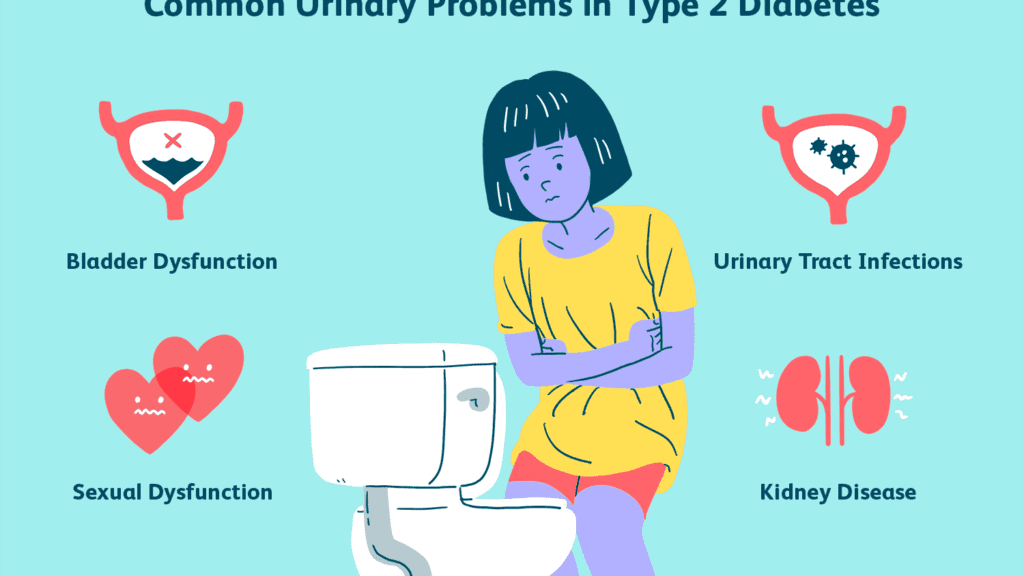Diabetes affects almost all systems of the human body, including the genitourinary system. On the one hand, as a result of decompensation of carbohydrate metabolism, patients with diabetes mellitus develop neuropathy, vasculopathy, which leads mainly to functional disorders, on the other hand, diabetes mellitus causes the development of infectious-inflammatory diseases of the genitourinary system.
Due to the anatomical features, the impact of diabetes on the urinary tract is different in women and men, but regardless of gender, these problems can dramatically affect the quality of life.

diabetes and problems with urination
Complications caused by the genitourinary system as a result of diabetes are recognized.
- Bladder dysfunction
- Urinary tract infections
- Sexual dysfunction
- Kidney diseases
Studies have shown that more than half of patients with diabetes have bladder dysfunction, which, in turn, has various manifestations. hyperactive bladder, in which the muscles of the bladder begin to contract involuntarily even with a small amount of urine in the bladder. This leads to loss of control over urination and may manifest itself in frequent urination or urinary incontinence.
Polyuria, which represents a significant increase in the amount of urine per day (more than 3 liters). Urinary tract infections in patients with diabetes mellitus have a complicated course and frequent exacerbations. The causative agent, which causes inflammation of the urinary tract, usually has high resistance to antibiotics.
Among the main factors, the risk is highlighted.
- age,
- metabolic changes,
- other complications caused by diabetes.
Infectious-inflammatory diseases caused by diabetes are pyelonephritis, cystitis, prostatitis and balanoposthitis.
Diabetes
Erectile dysfunction is one of the typical neurogenic and vascular complications of diabetes. It has been confirmed that erectile dysfunction is one of the most frequent urological complications of diabetes. It occurs in 50-60% of men with diabetes.
The etiology of erectile dysfunction is multifactorial.
- disorders of the endocrine system
- vascular disorders,
- decompensation of diabetes,
- neuropathy,
- psychogenic factors։
Diabetic nephropathy Most patients with chronic renal failure suffer from diabetes. Every fourth patient with diabetes develops kidney failure, called diabetic nephropathy. Diabetic nephropathy causes damage to the functional part of the kidney (nephron).
There are more than a million nephrons in the kidneys, which contain blood vessels called glomeruli. The blood passes through the glomeruli and undergoes filtration, after which the already filtered blood passes into the bloodstream, and harmful substances are removed with urine.
When nephrons are damaged as a result of diabetes, these harmful substances are not excreted by the kidneys and accumulate in the body. In the initial stages of chronic renal failure, patients' complaints are insignificant, and only in cases where there is pronounced azotemia, patients' complaints become significant and noticeable.